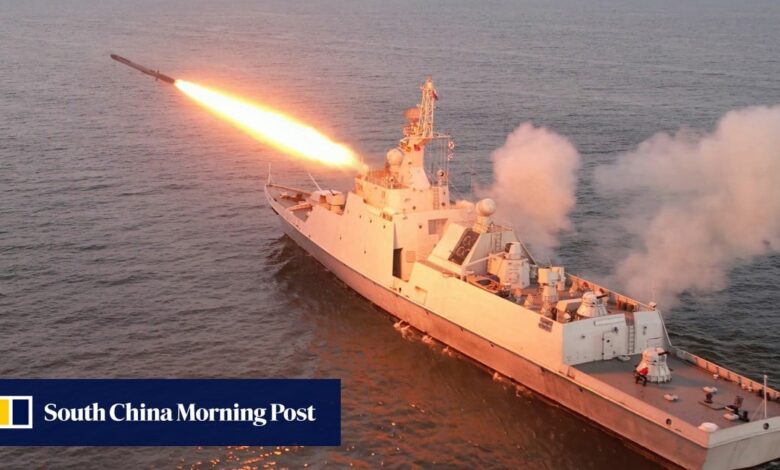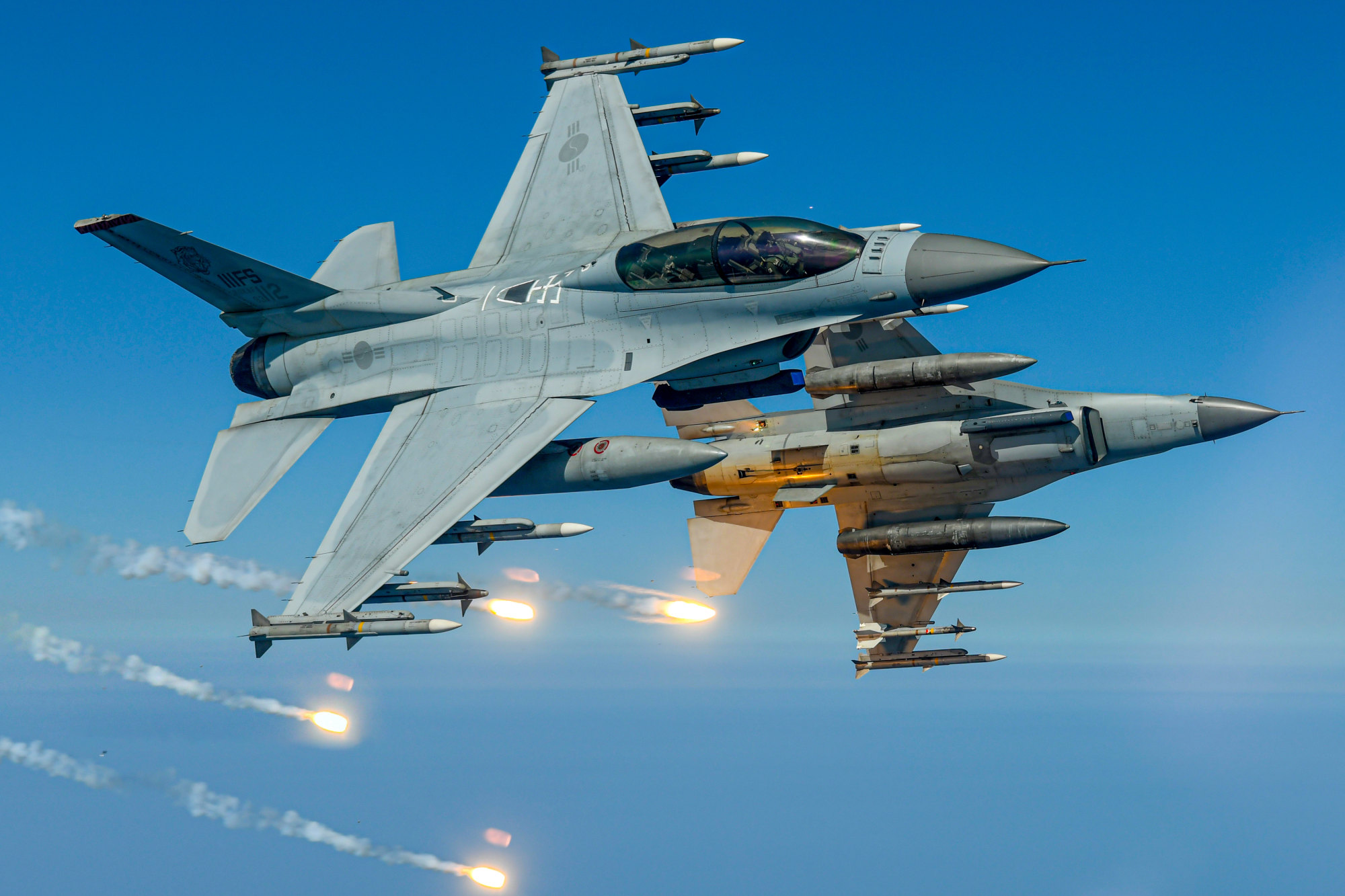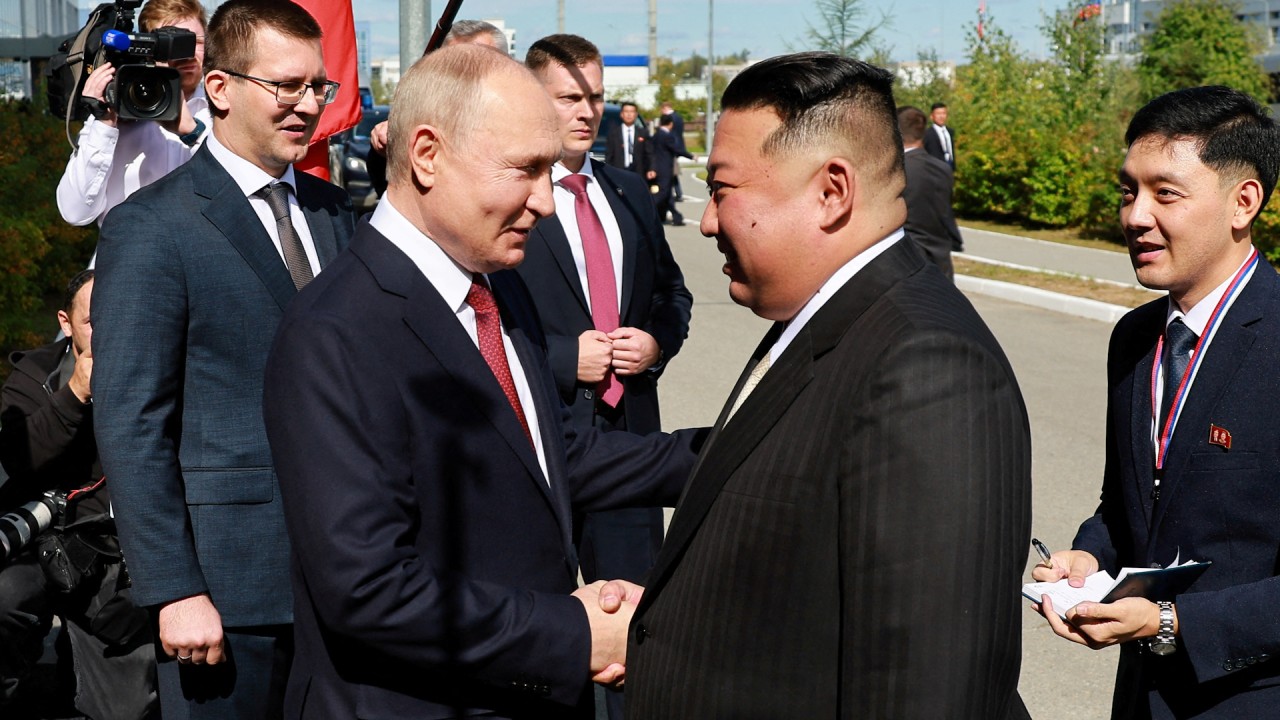Kim Jong-un’s not there, but North Korea is still firing off missiles

[ad_1]
It was the first such launch to occur while Kim was abroad for a rare trip, analysts said.
South Korea detected “two short-range ballistic missiles fired by North Korea from the Sunan area towards the East Sea at around 11.43am to 11.53am”, the Joint Chiefs of Staff said, referring to the body of water also known as the Sea of Japan.
South Korea’s Joint Chiefs of Staff said: “Our military has strengthened surveillance and vigilance in preparation for further launches, while maintaining full readiness by closely cooperating with the US.”
Japan’s Chief Cabinet Secretary Hirokazu Matsuno told reporters that Tokyo had lodged a protest against North Korea through diplomatic channels in Beijing.
North Korea fires ‘mock nuclear warheads’ as ‘desperate’ Kim seeks US counter
North Korea fires ‘mock nuclear warheads’ as ‘desperate’ Kim seeks US counter
Both missiles fell in the sea outside Japan’s exclusive economic zone, he added.
“Fascinating: a launch without Kim [Jong -un] in the country. A first,” US-based analyst Ankit Panda wrote on social media platform X.
“Starting in 2019, [Kim] stopped attending every single publicised launch (and sometimes his presence was deliberately obscured) … There’s precedent for launches without Kim, but not without Kim in-country.”
The nuclear-armed North has conducted regular launches of everything from short-range and cruise missiles to massive intercontinental ballistic missiles that can strike the continental United States.
There’s precedent for launches without Kim, but not without Kim in-country
Since then, Beijing and Moscow have called for sanctions to be eased on the North to jump-start diplomatic talks and improve the humanitarian situation.
Kim didn’t leave his country for six years after taking power in 2011 when his father died.

How Kim maintains command and control over his country’s missile and nuclear forces while abroad is unclear, but analysts say recent drills have revealed a system for overseeing nuclear weapons similar to those used in the United States and Russia.
A report in March by the 38 North programme, which tracks North Korea, said state media announcements outlined a process that includes commanders of units and various subunits, a launch approval system, and “technical and mechanical devices” governing nuclear weapons control.
Xi hails ‘new era’ in China’s ties with North Korea amid rising tensions
Xi hails ‘new era’ in China’s ties with North Korea amid rising tensions
South Korea and the US have ramped up defence cooperation in response to the North’s string of banned weapons tests – the latest before Wednesday involving two short-range ballistic missiles on August 30 – staging joint exercises as well as naval drills with Japan.
Relations between the two Koreas are at their lowest point in years, and diplomacy is stalled after failed attempts to discuss Pyongyang’s denuclearisation.
Additional reporting by Agence France-Presse
[ad_2]
Source link





